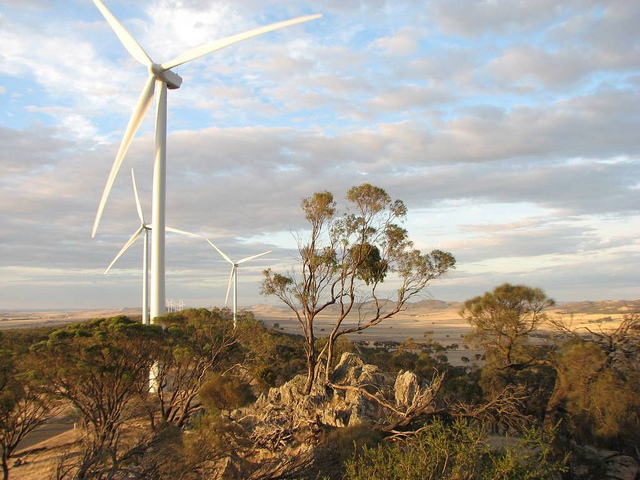Like this article? rabble is reader-supported journalism. Chip in to keep stories like these coming.
First-time visitors to Australia are often drawn to the big city attractions of Sydney and Melbourne or the fabulous beaches of Queensland’s Gold Coast. I’ve always had a soft spot for Adelaide in South Australia, a city built more on a human scale, where downtown can be easily navigated on bike, foot or tram. For me, Adelaide’s greatest attraction is a huge market right in the city’s centre.
When I first visited Adelaide in 1993, I met Mike Rann, a young, charismatic aboriginal affairs minister in South Australia’s Labor government. His party lost the election that year, but Rann later became party leader and then state premier in a minority government in 2002. I met him again in 2003 when he outlined ambitious plans to address climate change by aggressively moving South Australia into renewable energy. Wind and solar were the obvious opportunities, but he was also enthusiastic about “hot rocks,” superheated pockets that could create steam to drive turbines for electricity.
Rann proudly introduced me to the Youth Conservation Corps. Young people in this program are trained to restore land overgrazed by sheep or cattle, plant trees and make wildlife inventories. Rann surprised me by dedicating 45 hectares of reforestation land as Suzuki Forest.
I met young people working on “my” forest who enthusiastically told me about the number and variety of birds they’d seen that day, described plant species and talked about how many trees they had planted. Many were street kids, inspired by the chance to learn about nature and conservation and proud to be re-greening the area. I was impressed by their passion and eagerness. They believed in what they were doing and it provided a small income to get them off the streets.
My Adelaide visit that year ended at the World of Music and Dance festival, or WOMAD, a marvelous annual event where I heard the late Richie Havens sing his famous song “Freedom.” To top it off, I met Uncle Lewis O’Brien, a Kaurna elder who honoured me with the name Kaurna Mayu (mountain of a man).
I kept in touch with Mike Rann over the years. He was re-elected with majority governments in 2006 and 2010, then resigned in 2011. Last March, I returned as a guest of WOMADelaide. Although Rann was in Italy where he is now Australia’s ambassador, his wife Sasha welcomed me back. Again, the festival was a wonderful gathering of local and visiting musicians and dancers (including two groups from Canada), and to my delight, Uncle Lewis is alive and welcomed us to his country.
In Adelaide, I met Ian Hunter, South Australia’s environment minister, who boasted of his state’s tremendous progress in renewable energy. South Australia gets 40 per cent of its electricity from solar and wind and hopes to reach 50 to 60 per cent within a few years. The area is blessed with abundant sunlight, but few jurisdictions have committed to solar as aggressively and successfully as South Australia. From my hotel room, I looked down on a factory roof covered in rows of solar panels, which are now mounted on one of every four houses.
I also returned to Suzuki Forest. I was delighted and amazed at the variety and size of plants and trees, and the birds that now flourish among them. Perhaps my forest has been protected by neighbouring Schwarzenegger Forest!
Despite the impressive work in South Australia, most of the country is caught between the terrible reality of climate change — droughts, massive fires and dying reefs — and continued pressure to serve the economy by relying on fossil fuels, including recently approving the world’s largest coal mine.
Australia’s centre-right Liberal government under Prime Minister Tony Abbott gutted the previous government’s actions on climate change, disbanding the Climate Commission headed by world-renowned climate expert Tim Flannery in 2013 and cancelling Australia’s modest carbon price in 2014. Fortunately, the public started funding Flannery’s work, and the commission was reborn as the independent Climate Council. Abbott was booted by his own party after a short reign.
Nevertheless, the country — like much of the world — is in the throes of deciding whether to act seriously to reduce the threat of climate change. South Australia shows that many opportunities exist to do so.
Learn more at www.davidsuzuki.org.
Photo: David Clarke/flickr
Like this article? rabble is reader-supported journalism. Chip in to keep stories like these coming.



